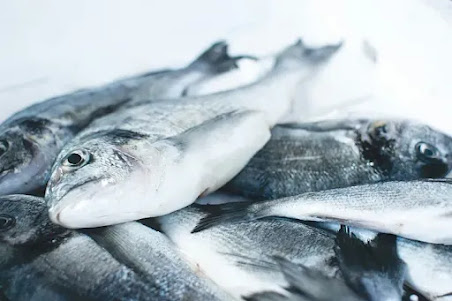10 foods and drinks for glowing, healthy skin
Eating a diet rich in healthy fats and vitamins can be beneficial for skin health. Many fruits and vegetables, including red grapes and tomatoes, contain a number of compounds that benefit your skin.
Nutrition is important for health. An unhealthy diet wreaks havoc on your metabolism. It can also cause weight gain. It can even damage organs like your heart and liver.
But what you eat also affects other organs you don’t think about. It is your skin.
As scientists learn more about food and the body, it’s becoming increasingly clear that what you eat can significantly affect the health and aging of your skin.
In this article, let’s look at 12 best nutritious foods to keep your skin healthy.
1. Walnuts
Walnuts have many properties that make them a great food for healthy skin. They are a good source of essential fatty acids, which are fats that your body cannot make. In fact, they are richer in omega-3 and omega-6 fatty acids than most other nuts.
A diet high in omega-6 fats can cause inflammation in your skin, including psoriasis. Omega-3 fats, on the other hand, reduce inflammation in your body. (including your skin) Foods containing omega-6 fatty acids are abundant in the Western diet, while food sources containing omega-3 fatty acids are rare. Because walnuts contain a good proportion of these fatty acids, they help combat the inflammatory response that can occur to too much omega-6.
What’s more, walnuts contain other nutrients that your skin needs to function properly and stay healthy. 28 grams of walnuts contain 8% zinc. Zinc is essential for your skin to function properly as a barrier. It is also needed for wound healing and fighting both bacteria and inflammation. Walnuts also provide the antioxidant vitamin E and small amounts of selenium. It also contains protein.
2. Fatty fish
Fatty fish like salmon, mackerel and herring are great foods for healthy skin. They are rich sources of omega-3 fatty acids, which are important for maintaining skin health. Omega-3 fatty acids help keep skin plump, supple and moisturized. In fact, a deficiency of omega-3 fatty acids can cause dry skin. Omega-3 fats in fish reduce inflammation, which reduces skin redness and acne breakouts.
It resists UV rays in a way that your skin can withstand even the sun’s harmful UV rays. Some studies show that fish oil supplements can help fight inflammatory and autoimmune conditions that affect your skin, such as psoriasis and lupus. Fatty fish is a great source of vitamin E, one of the most important antioxidants for your skin.
Getting enough vitamin E is essential to protect your skin from damage from free radicals and inflammation. This type of seafood is also a source of high-quality protein, which is necessary to maintain the strength and integrity of your skin. Finally, fish is a sink.
Zinc prevents the following from occurring on the skin:
✅Skin inflammation
✅Various skin disorders
✅Production of new skin cells
✅Skin inflammation caused by zinc deficiency
✅Wounds and delayed wound healing
3. Sunflower seeds
In general, nuts and seeds are a good source of skin-nourishing nutrients. Sunflower seeds are a good example.
One ounce (28 grams) of sunflower seeds packs 49% vitamin E, 41% selenium, 14% zinc and 5.5 grams of protein.
4. Avocado
Avocados are high in healthy fats. These fats benefit many functions in your body, including the health of your skin. Adequate intake of these fats is essential to keep the skin supple and moisturized.
One study involving more than 700 women found that high consumption of total fat, especially the healthy fats found in avocados, was associated with more flexible, unhealthy skin. Preliminary evidence shows that avocados contain compounds that help protect your skin from the sun. UV damage to your skin can cause wrinkles and other signs of aging.
Avocados are a good source of vitamin E, an important antioxidant that helps protect your skin from oxidative damage. Most Americans do not get enough vitamin E from their diet. (in common) Vitamin C is also essential for healthy skin. Your skin needs it to make collagen, the main structural protein that keeps your skin strong and healthy.
Vitamin C deficiency is rare these days, but common symptoms include dry, rough and scaly skin that bruises easily. Vitamin C is an antioxidant that helps protect your skin from oxidative damage from the sun and the environment, which can cause signs of aging.
100 grams provides 14% vitamin E and 11% vitamin C.
5. Sweet potatoes
Sweet potatoes contain more beta-carotene. Beta-carotene is a nutrient found in plants. It acts as provitamin A. That means it can be converted into vitamin A in your body. Beta-carotene is found in oranges and vegetables such as carrots, spinach and sweet potatoes. Carotenoids like beta-carotene act as a natural sunscreen and help keep your skin healthy.
When consumed, this antioxidant enters your skin and protects your skin cells from sun exposure. This helps to prevent sun damage and skin dryness and wrinkles. Interestingly, high levels of beta-carotene can add a warm, orange hue to your skin, contributing to overall healthy skin.
6. Broccoli
Broccoli is rich in many vitamins and minerals important for skin health, including zinc, vitamin ‘A’ and vitamin C. It also contains lutein, a carotenoid that acts like beta-carotene. Lutein protects your skin from oxidative damage that can cause dryness and wrinkles.
But broccoli florets also pack a special compound called sulforaphane, which boasts some impressive potential benefits. It may have anti-cancer effects, including some types of skin cancer. Sulforaphane is also a powerful protective agent against sun damage. It works in two ways: neutralizing harmful free radicals and activating your body’s other defense systems.
In laboratory tests, sulforaphane killed 29% of skin cells exposed to UV light, with protection lasting up to 48 hours. Evidence suggests that sulforaphane may help maintain collagen levels in your skin.
7. Red or yellow bell pepper
Like sweet potatoes, bell peppers are a great source of beta-carotene, which gives your body plenty of vitamin A. Red or yellow bell peppers are rich in vitamin C. This vitamin is necessary for the formation of collagen, a protein that keeps the skin strong and healthy.
Bell pepper contains 211% of vitamin C in one cup i.e. 149 grams. A large observational study of women found that high intakes of vitamin C reduce the risk of skin wrinkling and dryness with age.
8. Tomatoes
Tomatoes are an excellent source of vitamin C and contain all the major carotenoids, including lycopene. Beta-carotene, lutein and lycopene have been shown to protect your skin from the sun. Tomatoes also help prevent skin wrinkles. Tomatoes are a great food for maintaining healthy skin as they are rich in carotenoids.
Consider pairing carotenoid-rich foods like tomatoes with a fat source like cheese or olive oil. Fat increases your absorption of carotenoids.
9. Green tea
Green tea helps prevent your skin from damage and skin aging. The powerful compounds in green tea are called catechins and work to improve the health of your skin in several ways.
Like several other antioxidant-rich foods, green tea can help protect your skin from the sun. A 12-week study involving 60 women found that women who drank green tea daily could reduce skin redness caused by sun exposure by up to 25%.
Green tea also improved their skin’s moisture, roughness, thickness and elasticity. While green tea is an excellent choice for healthy skin, be careful to avoid drinking tea with milk, as there is evidence that milk can reduce the effects of green tea’s antioxidants.
10. Red grapes
The compound resveratrol from the skin of red grapes is well known.
Resveratrol is credited with a wide range of health benefits, among them reducing the effects of aging. Test-tube studies show it can help slow the production of harmful free radicals that damage skin cells and cause signs of aging.
This beneficial compound is also found in red wine. Unfortunately, there isn’t much evidence that the amount of resveratrol you get from a glass of red wine affects your skin. And since red wine is an alcoholic beverage, drinking too much of it can have adverse effects.
It is not recommended to start drinking red wine only because of its potential health benefits. Instead, you should increase your intake of red grapes and berries.






















0 Comments